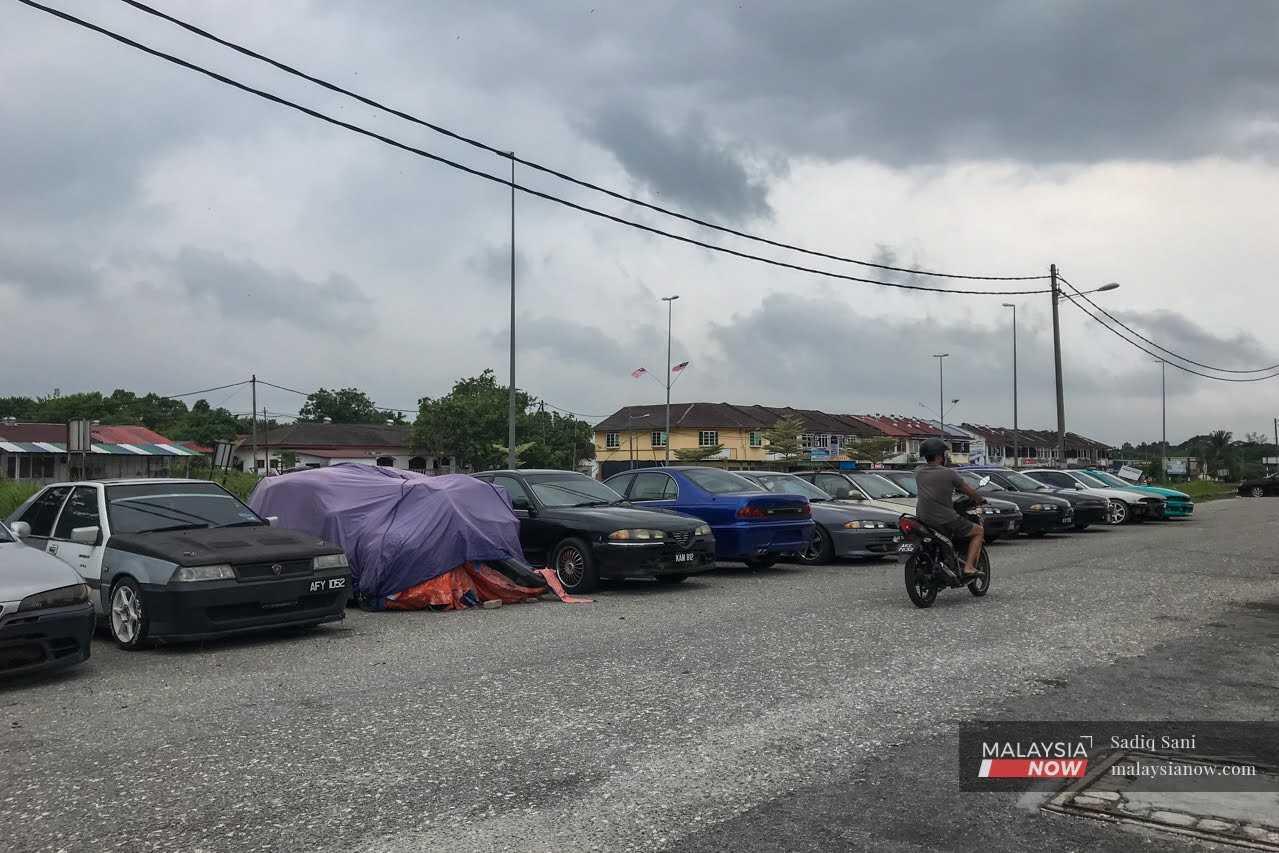Automotive observers tell why disposing of old cars will be hard
They say enforcement is one of the main problems in Malaysia when it comes to determining the roadworthiness of vehicles.
Just In
Observers in the automotive industry caution that old cars in Malaysia will not be easily disposed of even with the implementation of an end-of-life vehicle (ELV) policy like the one targeted by the government within the next few years.
Hezeri Samsuri, who operates the Careta.my website, said most people were still unable to afford new cars, which are more expensive in Malaysia than in Europe or the US.
Speaking to MalaysiaNow, he said the government only needed to establish a system in which vehicles are inspected on an annual basis to ensure that they are road-worthy.
"They could check the brake system, suspension, engine and so on," he said, adding that older cars also have a higher emission rate than new vehicles.
In European countries, for instance, owners are charged high fees if they wish to keep older vehicles.
Science, Technology and Innovation Minister Dr Adham Baba said earlier this month that the government was studying a suitable approach to implement an ELV management policy by 2025.
He said the policy was important to ensure that components and usable material from old vehicles could be of use and not simply thrown away.
According to him, the export potential for the industry was about RM10 billion.
He also said that no country mandates the disposal of old cars, including Singapore which is known for its strict policy on private vehicle ownership.
In Malaysia, Hezeri said, enforcement is one of the main problems.
In the US state of California, for example, pollution laws are stricter than in some other states.
"In Malaysia, though, state laws don't mention vehicles at all," Hezeri said.
"Maybe those living in Selangor can afford to keep old cars, but this is difficult for less developed states to follow. A blanket approval for the entire country would be unfair."
There are some 30 million vehicles registered in Malaysia, roughly equivalent to the number of people. Of these, more than 60,000 abandoned vehicles are still registered throughout the country, according to reports in 2019.
Several years ago, a proposal for the disposal of old vehicles was raised, but did not receive a positive reaction from the public.
In June, Transport Minister Wee Ka Siong said the suggestion to dispose of cars older than 10 years was not yet appropriate for implementation in Malaysia.
Automotive analyst Chips Yap said the policy should also cover the use of electric vehicles, as the recycling and disposal of batteries will become an issue once the number of EVs on the roads go up.
"We should not wait until there are too many disused battery packs all over the country before we start developing a proper policy on what to do with them," he said.
The policy should also cover the deregistration of vehicles that have been disposed of from the records of the Road Transport Department (JPJ), as many such vehicles still remain on record.
Citing his personal experience, Yap said his own car had been involved in an accident, following which he had paid for the insurance, repaired it, and sold it for reuse.
He said an ELV policy could ensure that such things do not happen.
The Automotive Accessories Traders Association of Malaysia meanwhile welcomed the initiative which it said could resolve the issue of abandoned vehicles through recycling.
Its president Lim Bee Choo said statistics from May showed that 19 million of some 33 million registered were about 10 years old.
"This initiative will impact certain industry players who will have to find ways to dispose of their existing stock for old vehicles," Lim said.
"The repair, reuse and remanufacturing of automotive parts and components will be impacted as well."
Lim said even if the policy is not 100% implemented in the near future, it would be the first step for allowing safety checks before owners can renew their road tax for older vehicles.
Lim also voiced hope that the related government agencies could prepare platforms for discussion and engagement with stakeholders before the policy is formed.
Hezeri meanwhile said the measure should be taken as the government was in need of the true number of vehicles currently on the road.
He suggested that the provision of initiatives might help reduce the problem of old cars abandoned by the side of the road.
"Owners will have the option of disposing of old cars if there are incentives," he said.
He said this would also provide the automotive industry with a supply of used spare parts that could be processed and exported, in addition to increasing new vehicle sales.
Previous initiatives by the government include the Cash for Clunkers campaign, conducted with Perodua and Proton, through which incentives of RM5,000 were given to owners who disposed of their old vehicles.
Subscribe to our newsletter
To be updated with all the latest news and analyses daily.
